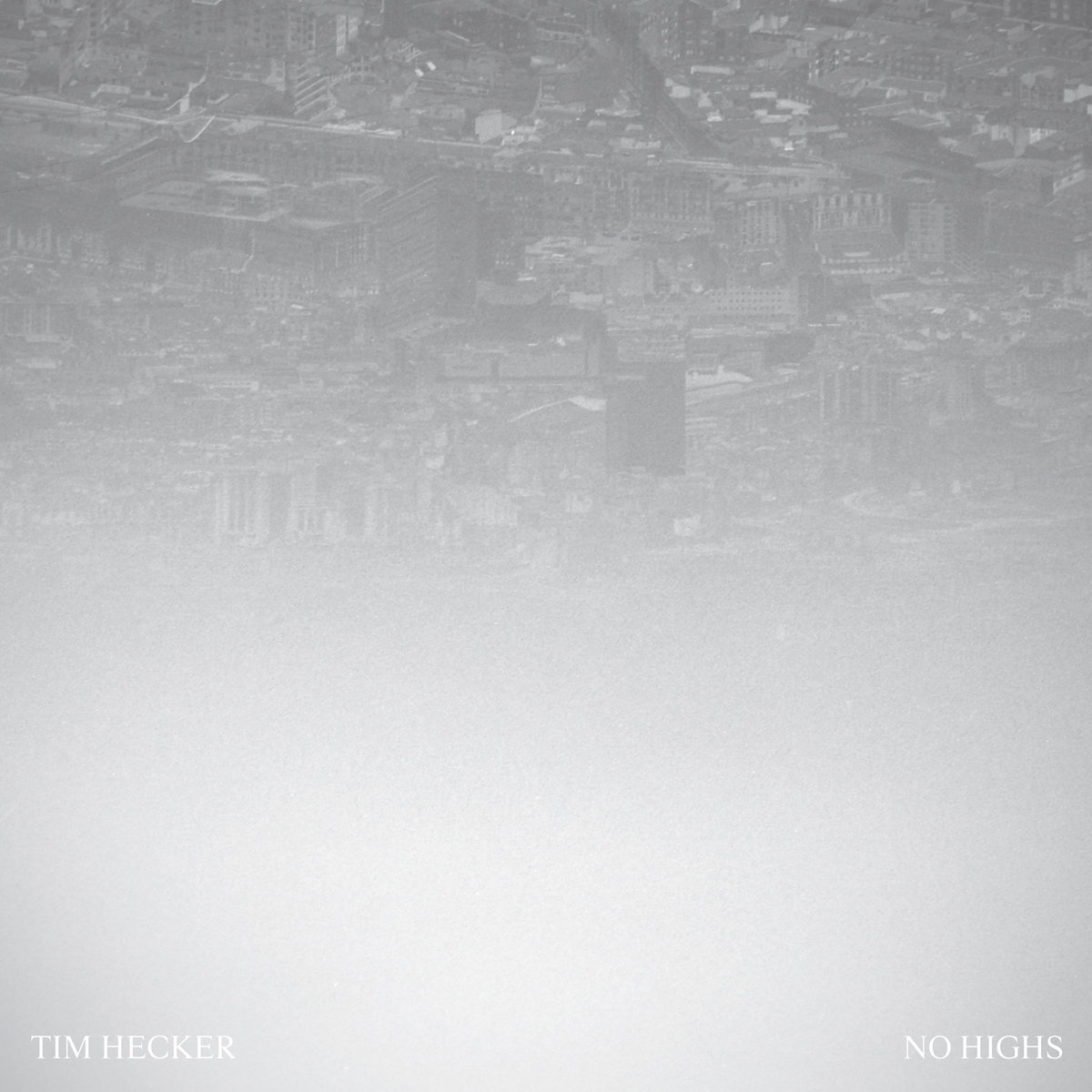Tim Hecker
No Highs
KRANKY
In naming his new album No Highs and starting it off with a song called “Monotony,” Tim Hecker throws down the gauntlet. Is he mocking us for still wanting to give the record a shot? Is he lowering our expectations so drastically that his latest collection of ambient music can’t be anything but refreshing?
Of course not. Now 48 years old, the Canadian soundscape artist strips any semblance of sensationalism from his electronic music, lowers the lights, increases the number of monsters lurking in the shadows, and thrills us like never before. Often cited for his work on films and associations with experimental titans ranging from Aphex Twin to Aidan Baker to Daniel Lopatin, Hecker keeps the momentum going from his recent scores to movies including Brandon Cronenberg’s Infinity Pool and the Austrian horror flick Luzifer. As the saying goes, No Highs often resembles the soundtrack to a movie that doesn’t yet exist.
As he did with 2011’s Ravedeath, 1972 and 2006’s Harmony in Ultraviolet, Hecker has once again transcended any limitations posed by making music for cinema by carefully measuring the ingredients going into No Highs. Due in part to not having (much) imagery to immediately associate with instrumental songs like the dizzying, translucent “Lotus Light” and the quadraphonic masterpiece “Anxiety,” Hecker has free rein over where he takes us purely as listeners.
Hecker previously showed his mastery of breaking new ground with his 2018 and 2019 albums Konoyo and Anoyo, respectively. With his first studio effort since then, he reminds us that he doesn’t have to rely on new visual subject matter to venture further into the unknown. So long as he trains one eye on his minimalist roots, Hecker never heaps on too much—which is the toughest maneuver to pull off for electronic music craftspeople. As best laid out on “Lotus Light,” Hecker can keep a song going for more than eight minutes without having to tease us with too many hijinks. Seemingly imbued with a life all its own—even separate from the rest of No Highs—the song flickers but never flinches, with half the instrumentation pulsating like a heartbeat and the other half keeping the song’s framework intact.
“Lotus Light,” “Monotony,” “Anxiety” and “Living Spa Water” capture Hecker at his most inventive, and it’s usually around the four-minute mark when that creative impulse starts to kick in. With those four strong pillars keeping No Highs well-rooted, a few of the tracks in between don’t feel as fully realized. Maybe that’s reflective of Hecker having dug too deep into soundtracks, which are usually based around a few major compositions padded out with filler music in between. “Monotony II” features some saxophone licks from fellow horror-soundtrack artist Colin Stetson that might have given the album a strong reprise at the end of the record. “Sense Suppression” is so wafer-thin that it melts like garlic in butter as the penultimate track.
Of course, if Hecker hadn’t ventured as far as he does on No Highs, he’d face the more artistically damaging situation of having not experimented enough. With 11 studio albums under his belt (not counting soundtracks and collaborations), Hecker knows when to soften or harden his grasp—and, sometimes, let go altogether.









